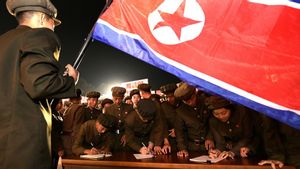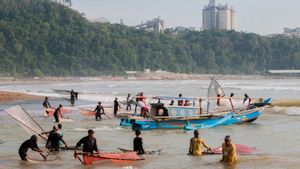JAKARTA - The South Korean government imposed an overseas travel ban on two men for refusing to pay child support fees to their respective custodial parents after a divorce, the Ministry of Gender Equality and Family said Tuesday.
It is the first time an outbound travel ban is due to arrears in child support obligations, after the relevant law was revised in July to strengthen measures in such cases.
Under the revised law, a travel ban is applied to those who owe more than 50 million won ($41,700) in child benefits. And, those who owed more than 30 million won and had traveled overseas more than three times in the previous year.
The ministry said the two men, identified only by the surnames Kim and Hong respectively, failed to pay 117.2 million won and 125.6 million won for child support, respectively.
On September 9, former spouses each demanded the imposition of a travel ban abroad. The ministry gave the two 10 days to provide an explanation, which they failed to do.
"We ask the Ministry of Justice to impose a ban on the two men on October 6," a ministry official said, citing the Korea Times on October 12.
The revised law orders the government to impose a travel ban on parents who fail to fulfill their child support obligations, as well as disclose their names, ages, occupations and addresses on the ministry's website, if they continue to withhold child support payments.
The ministry will give the two men further opportunities to provide explanations until mid-December, before deciding to reveal their identities.
"Once a decision is made, their names, ages, occupations and addresses will be disclosed on the ministry's website for three years starting December 31," the official said.
To note, the South Korean Government has consistently stepped up measures against those who fail to pay child support, which appears to have contributed to the increase in payout rates.
This figure only reached 21.2 percent in 2015, but increased to 36.8 percent as of November 2020.
The ministry said there was a need to simplify the requirements for imposing travel bans in a bid to increase the effectiveness of the policy.
The English, Chinese, Japanese, Arabic, and French versions are automatically generated by the AI. So there may still be inaccuracies in translating, please always see Indonesian as our main language. (system supported by DigitalSiber.id)













